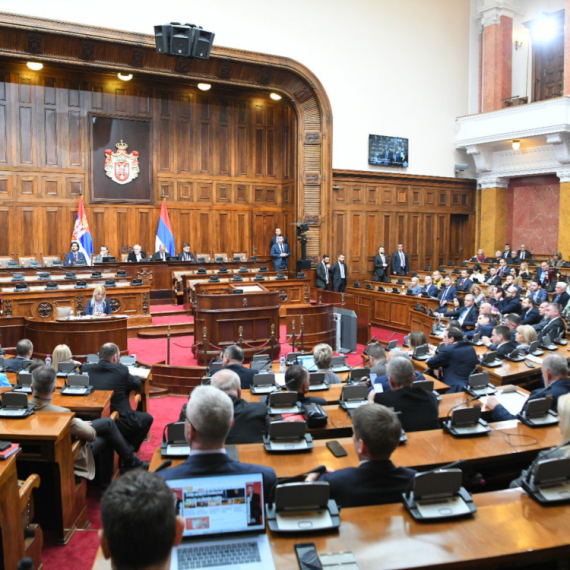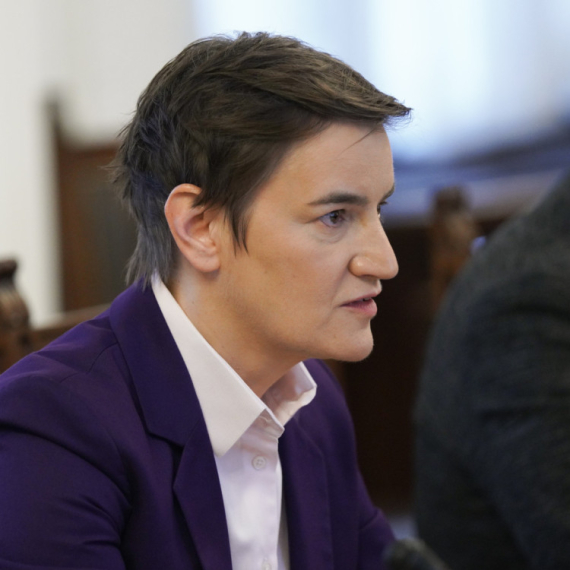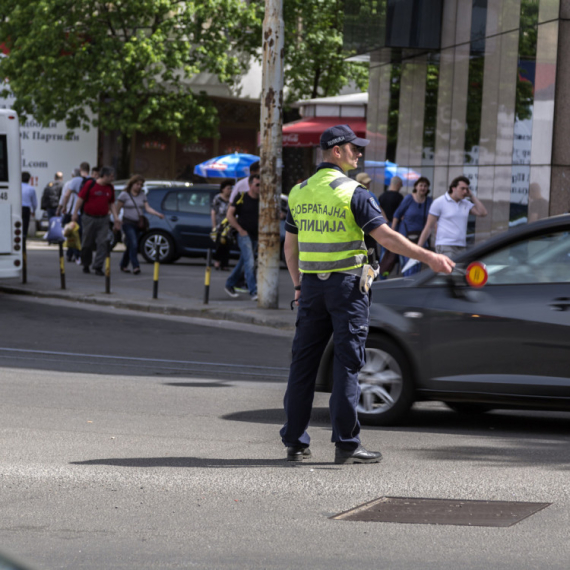Greek crisis sparks riots, euro slides
The economic crisis in Greece has sparked riots that killed three people.
Thursday, 06.05.2010.
09:57

The economic crisis in Greece has sparked riots that killed three people. Massive protests broke out against severe government spending cuts aimed at saving the country from economic collapse. Greek crisis sparks riots, euro slides Tens of thousands of people marched through central Athens protesting government plans to impose new spending cuts to save the country from bankruptcy. The protesters chanted in the streets as riot police with stun grenades and tear gas fought street battles with rock-throwing demonstrators, including a group trying to storm the parliament building. Violence also broke out in the northern city of Salonika, where demonstrators smashed windows in the city's center. Prime Minister George Papandreou presented parliament an austerity bill with $40 billion in budgets cuts that include pension rollbacks, tax hikes and wage freezes. Opponents argue the cuts will mostly affect the poor. The Greek government agreed to the budget cuts in exchange for a $145-billion economic-rescue package from the European Union and the International Monetary Fund. The crisis has prompted a loss of investor confidence in European economies, pushing the euro to its lowest level in 13 months. EU Economic and Monetary Affairs Committee member Udo Bullmann says the panel hopes a solution can be found within the European Union. "We have to safeguard the functioning of the eurozone, that is one of our most important tasks," said Bullman. The big fear in Brussels is that skeptical investors will pull their money out of the eurozone. Economist Stelios Platis told VOA News other EU countries are not immune to the effects of the Greek bankruptcy. "The important thing to consider is that in order to maintain a unified economy within the eurozone you have to have stability," said Paltis. "If one player, irrespective of its size, falls under, then it remains a possibility for any other member of that economic unit to also face the same difficulties." Investors are openly shunning other vulnerable countries - including Ireland, Italy, Portugal and Spain, pushing yields on these countries' bonds to record highs. "The problem is that the European Union or the eurozone in this case, is not equipped with the tools it needs to run the currency," said Sophia in't Veld, a member of the European Parliament. "We have a common currency, but we have no instruments to decide, act or to intervene when it is necessary - then we are empty handed." Meanwhile in Greece, lawmakers may vote as early as Thursday on the controversial proposal to impose new austerity measures. (Beta/AP)
Greek crisis sparks riots, euro slides
Tens of thousands of people marched through central Athens protesting government plans to impose new spending cuts to save the country from bankruptcy.The protesters chanted in the streets as riot police with stun grenades and tear gas fought street battles with rock-throwing demonstrators, including a group trying to storm the parliament building.
Violence also broke out in the northern city of Salonika, where demonstrators smashed windows in the city's center.
Prime Minister George Papandreou presented parliament an austerity bill with $40 billion in budgets cuts that include pension rollbacks, tax hikes and wage freezes.
Opponents argue the cuts will mostly affect the poor.
The Greek government agreed to the budget cuts in exchange for a $145-billion economic-rescue package from the European Union and the International Monetary Fund.
The crisis has prompted a loss of investor confidence in European economies, pushing the euro to its lowest level in 13 months.
EU Economic and Monetary Affairs Committee member Udo Bullmann says the panel hopes a solution can be found within the European Union.
"We have to safeguard the functioning of the eurozone, that is one of our most important tasks," said Bullman.
The big fear in Brussels is that skeptical investors will pull their money out of the eurozone. Economist Stelios Platis told VOA News other EU countries are not immune to the effects of the Greek bankruptcy.
"The important thing to consider is that in order to maintain a unified economy within the eurozone you have to have stability," said Paltis. "If one player, irrespective of its size, falls under, then it remains a possibility for any other member of that economic unit to also face the same difficulties."
Investors are openly shunning other vulnerable countries - including Ireland, Italy, Portugal and Spain, pushing yields on these countries' bonds to record highs.
"The problem is that the European Union or the eurozone in this case, is not equipped with the tools it needs to run the currency," said Sophia in't Veld, a member of the European Parliament. "We have a common currency, but we have no instruments to decide, act or to intervene when it is necessary - then we are empty handed."
Meanwhile in Greece, lawmakers may vote as early as Thursday on the controversial proposal to impose new austerity measures.





















































Komentari 1
Pogledaj komentare